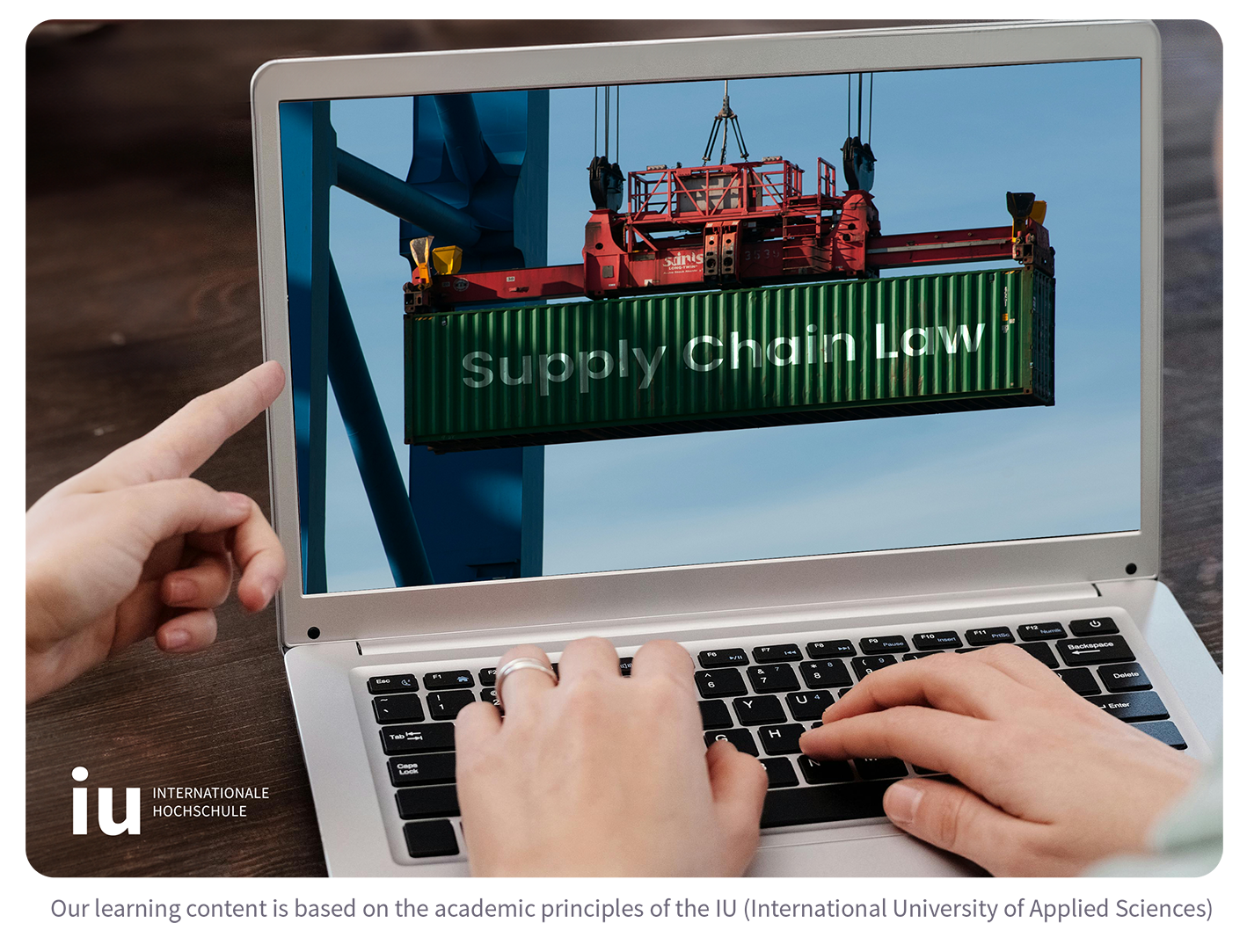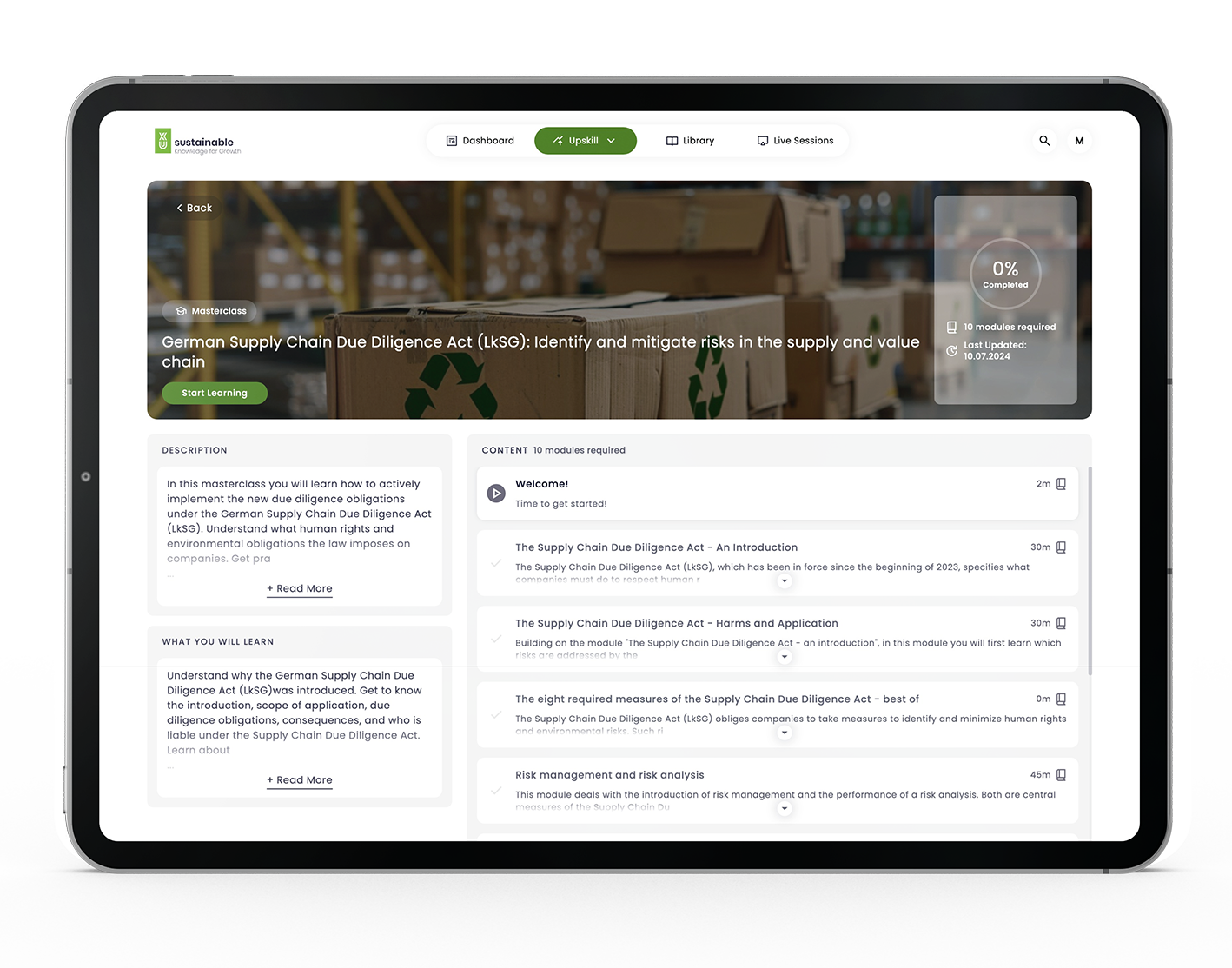The new Supply Chain Law for companies



What does the Supply Chain Act stipulate for companies?

Who checks for compliance with the Supply Chain Act?

The Supply Chain Act applies to these companies

More than 120 companies are already qualifying as sustainability experts with XU sustainable
Would you like to learn more about us first?
What You Need to Know about the LkSG
In our globalized economy, a global mindset is needed to effectively protect people and the environment in supply chains.
Why does the LkSG exist?
The Supply Chain Due Diligence Act (LkSG), effective since 2023, targets companies with headquarters or branches in Germany. It requires companies to establish adequate and effective risk management integrated into all business processes. Companies must document that no human rights violations occur throughout their entire supply chain. The law aims not only to improve human rights conditions but also to contribute to greater sustainability, less environmental destruction, a reduction in child labor, and protection against human exploitation by closely scrutinizing suppliers.
Is your company affected by the LkSG?
Companies in Germany with more than 3,000 employees are legally required to comply with their due diligence obligations within the supply chain. The goal of this new regulation is to improve supply chain transparency and respect internationally recognized human rights. Starting January 1, 2024, this threshold will be lowered to companies with 1,000 employees.
What sanctions are threatened for non-compliance?
Violations of the LkSG, such as lacking preventive measures or other requirements, can result in fines and penalties based on annual revenue. These can be up to 8 million euros or up to 2 percent of the global annual revenue. The revenue-based penalty framework applies only to companies with more than 400 million euros in annual revenue.
What are the five main requirements your company must fulfill?
If your company is required to bear the fundamental responsibility for supply chains and avoid human rights violations and environmental impacts, you must cover five important areas. We train your employees to fulfill your due diligence obligations and requirements and to act in compliance with the LkSG.
Taking responsibility
Companies must adopt and communicate a policy statement on their human rights strategy under the Supply Chain Due Diligence Act. This includes the results of the risk analysis, measures for prevention and remediation, process descriptions, the appointment of a human rights officer, clear responsibilities, and preventive measures.
Identifying risks
Companies must transparently show what their supply chains look like and the associated human rights and environmental risks. The risk analysis must distinguish between the direct impacts of the company, contractual relationships with suppliers, and complex business relationships without direct contractual agreements. If a company finds that a human rights or environmental violation has occurred or is imminent in its own business area or with a direct supplier, it must take remedial measures. These measures should stop the violations and prevent further harm.
Minimizing risks
Based on the risk analysis, companies take preventive measures to prevent violations in their business areas. These include contractual human rights clauses, appropriate procurement strategies, training for employees and suppliers, and regular monitoring measures.
Inform and report
The law also requires continuous reporting on the measures taken and violations within the framework of the Supply Chain Due Diligence Act. An annual report must be submitted to the Federal Office for Economic Affairs and Export Control (BAFA) 4 months after the company’s fiscal year-end, providing information on identified risks, measures taken, evaluation of impacts and effectiveness, and future preventive measures.
Enable complaints
Companies must establish a complaints procedure open to all stakeholders affected by or aware of human rights violations. The procedure should be transparent, fair, and accessible to all, and companies should promote dialogue with employees and suppliers in designing the complaint management system.
We're always happy to answer your questions
Let’s discuss how you can enhance your image, secure your competitiveness, increase your sales and expand your service portfolio through employee qualification in the field of sustainability.





